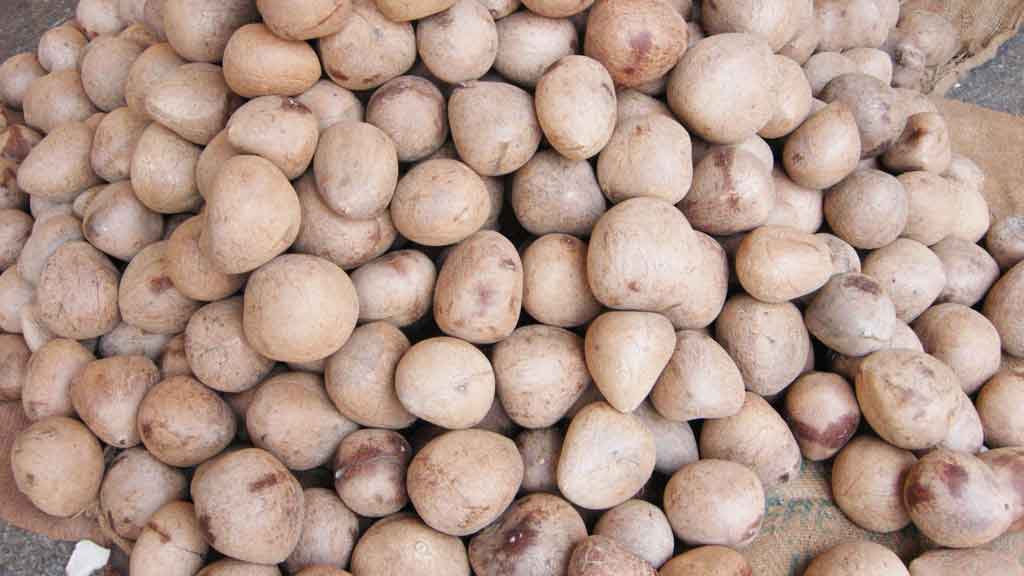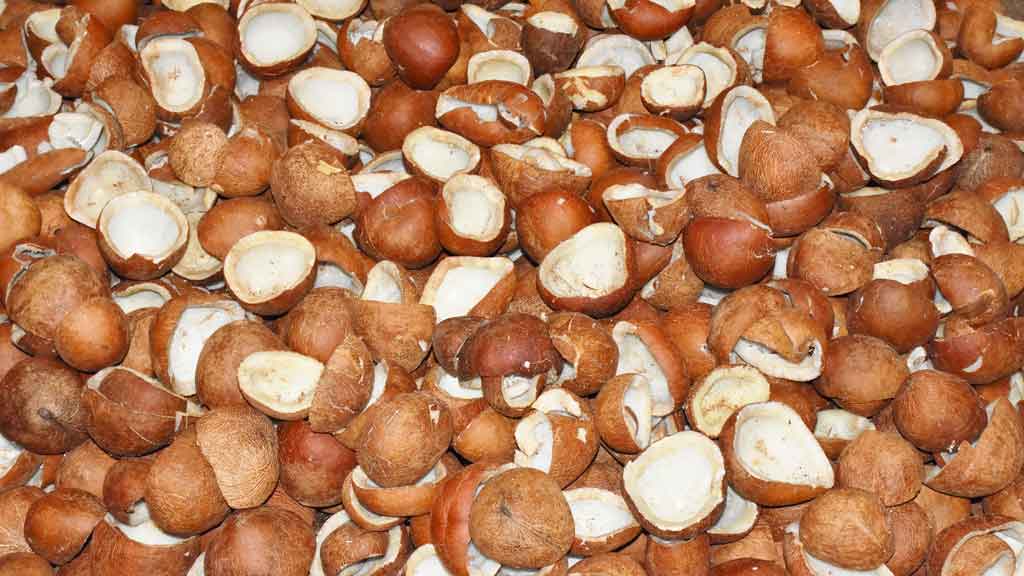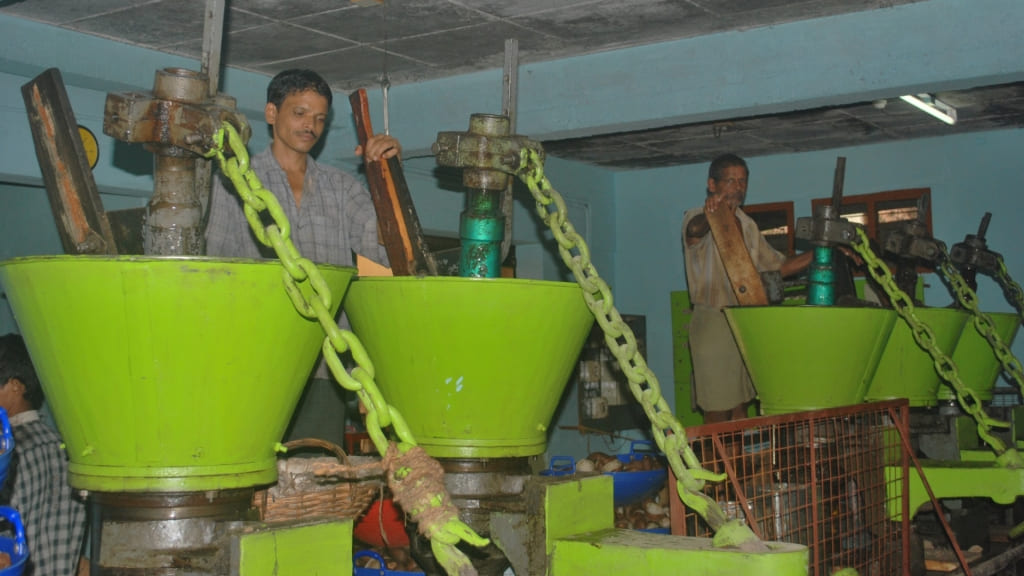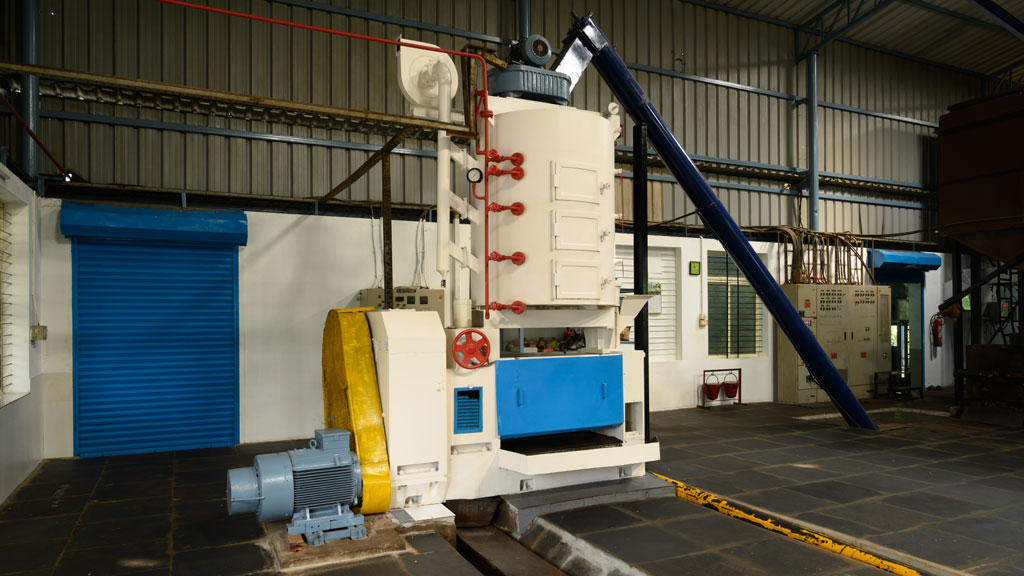Cocoguru brand has been built to benefit the farmers and consumers. It is successfully delivering quality coconut oil to consumers, who have been repaying their faith in us. The brand is growing stronger by the day, it is getting into newer territories, adding more products, and improving its quality. You don’t have to blindly believe us or the rumours, you may consider the following points before you form an opinion:
Premium product
Cocoguru brand is sold at a premium compared to other brands in the local market. So, cutting costs by adulteration is not necessary. It is not sustainable to sell at a premium by delivering inferior adulterated products.
Read more: cocoguru.com/yet-another-price-increase/
Brand
We believe in the power of the brand. We appreciate the fact that the brand as an asset is more valuable than all the physical assets like land, buildings, plant & machinery, saleable inventory, etc. So, every activity we do should be towards building and nurturing the brand. Adulteration or shortcuts are the quickest ways to kill it. Cocoguru brand is already 14 years old and is built to last. We are in it for the long term, not just for short-term profits.
Read more: cocoguru.com/adulteration-in-coconut-oil/
Consumer push instead of retailer push
Cocoguru products are sold because of demand by consumers at retail stores. In contrast to push by retailers for their benefit. To sustain this cycle, we should continue to satisfy and delight consumers rather than bribe retailers with better margins and payment terms.
Read more: cocoguru.com/how-do-we-set-mrp/
Sold at Super Markets and eCommerce portals
High-end quality-conscious consumers buy our products through modern trade supermarkets and various e-commerce portals. Our challenge is to stand their scrutiny of quality and standards. They don’t stress us on prices and hence there is no need for adulteration.
Read more: cocoguru.com/cocoguru-is-now-available-at-reliance-smart-stores/
User reviews
Don’t believe what we say, better to believe what other users have to say. In the days of social media and user-generated content, people are happy to review and recommend products based on their experience. Check the reviews and comments on social media platforms like Facebook & Instagram, and eCommerce portals like Amazon & Flipkart. At the Amazon portal, 1000s of consumers buy coconut oil from us every month, and almost 3000 consumers have reviewed the products with a 4.3 to 4.4-star average rating. Check our standings in the best sellers rank for coconut oil, it is in the top 20 list and among the top 8 brands in the country.
fssai random checks
Food Safety department conducts random tests of food products from the market. They don’t inform us, they test for the quality at the CFTRI laboratory and take actions based on their report. This way fssai is supposed to ensure that the food product consumers buy from the market is safe. Our products have been picked and tested at Kasaragod, Udupi, Mangaluru, Chikkamagaluru, and Kodagu and are safe every time. Yes, the department officials take bribes from brands and restrain them from taking action against brands if they get satisfactory amounts from them. However, Kerala’s food department is very strict with coconut oil as it is their staple edible oil. They have listed a widely sold coconut oil from Karnataka as adulterated.
Read more: indiafilings.com/learn/fssai-food-testing-procedure/
Laboratory testing
If you are not convinced, take a random sample yourself and test it against the parameters listed by BIS for coconut oil at any laboratory and find the results for yourselves. The test parameters and the results we obtained are here.
Full accounting and Invoicing
All the transactions carried out at Cocoguru are accounted for and audited by multiple government revenue departments like Income Tax, GST, APMC, Labour, Factories, Food, etc. All the transactions carry a legal Invoice or document. So, they can be traced and scrutinized.
Read more: cocoguru.com/statutory-info/
Transparency and Information
We believe in transparency and all the information is easily available to anyone who seeks it. We don’t fear competitors copying the ideas as that alone won’t give them the success that we have achieved. Our website is highly informative and detailed, our social media pages are continuously updated and informative. Only when we are confident of our activities, and it is good for the consumers do we share our information.
Factory Visit
We work from 9:00 am to 6:00 pm from Monday to Saturday. Anyone interested is welcome to visit the oil mill. No need to inform us, just randomly visit. Randomness of visits gives us no scope for any special “preparation”, Experience the cleanliness, methodical process, quality of raw materials and finished products. Ask us if you have any queries about the products and processes, and we will be happy to answer them whether you buy the product or not.
Read more: cocoguru.com/infrastructure/
Why does Cocoguru coconut oil have a longer shelf life?
I had been to Kalasa, Chikkamagaluru for developing our business there. While I was talking to a famous coffee maker Varamahalakshmi Coffee Works, he asked me how is that your coconut oil last much longer compared to other coconut oils? It was a great opportunity for me to highlight how different and superior Cocoguru coconut oil is compared to other coconut oils. Since he was curious, he listened carefully. Normally retailers don’t care, we rarely get to explain, if at all we get, they hardly listen. These are the factors which I explained
1. Copra making method
Copra is made from coconuts in 2 methods.
a. Fresh copra
Here fresh coconut is cut into two and immediately sun dried to get copra. This method is followed in coastal Karnataka and Kerala during summer and Tamil Nadu. Because of its freshness it would have undergone minimal deterioration.
b. Ball copra
Coconut with shell and husk is kept in attic for a long time to let coconut water in it slowly dry. After 6 months, moisture would have evaporated and kernel inside would become like a ball and separated from the shell. This type of copra popularly called as Tiptur edible ball copra is used for direct consumption. This method is used in Deccan platue regions of Karnataka. Those that are not in regular shape and size is used for oil milling purpose. Since the copra has become old, it would have undergone some deterioration. Milling copra is selected after selecting edible copra.
To make Cocoguru coconut oil only copra made from sun drying of fresh coconuts are used.
2. Copra Segregation
Copra is segregated to select only good quality ones and bad quality ones are separated. Only good quality copra gives good quality oil despite the best of processes further.
3. Copra drying
Moisture causes rancidity in cooking oil. So, moisture is removed by drying copra using hot air before oil extraction.
4. Copra roasting
Copra roasting further removes moisture and sterilises copra.
5. Oil Extraction
Coconut oil is normally extracted from copra in 2 types of machines, rotary and expeller.
a. Rotary
In rotary machine, copra with 8% moisture is crushed in a rotary machine, oil is then filtered by sedimentation in barrels for 7 days.
b. Expeller
In expeller, copra with 2.5% moisture is crushed in an expeller, oil is then filtered online through filter press.
Cocoguru coconut oil is extracted from dried copra using expeller and filtered through filter press. Popular perception is that oil that is cold pressed/wood pressed/rotary crushed is natural and superior, also it looks white/colourless. It is suitable only for immediate consumption and yet very ineffecient. Oil yield is low, moisture causes rancidity. Roasted coconut oil extracted through expeller is long lasting, safe, aromatic and tasty yet retains natural properties.
6. Fine filtering
Filtering removes solid particles and moisture, when done finely and thoroughly, it improves oil appearance and shelf life. At Cocoguru, coconut oil is double filtered.
7. Tight packaging
Packing is a way to hold, protect, carry and exhibit the oil. When done well, it goes a long way in ensuring shelf life and convenience of use. In our case shelf life increases from 6 months in PET bottles to 12 months in Jerry Cans.
8. Inventory management
We carefully manage stocks at manufacturing, distribution and retailer points to ensure the stocks are fresh and in good condition, so that consumers get fresh stock.
Overall, it is about careful taking care of each aspect of manufacturing and business process, not about chemicals and preservatives. For many manufacturers their scope ends when their products reach the wholesalers, for us it is about consumer experience.
New Website for Cocoguru
cocoguru.com now has a new website and design. This is the 3rd design since it started. This time the speciality being, the site is all self developed. Here I like to share our development process and ideas.
Domain Registration of cocoguru.com was done earlier with godaddy.com. Hosting was also done at godaddy.com’s server. Being a market leader in web domain and hosting space, it is also the best in business with minimum downtime and reliable service. Dealing with free hosts or any local hosting space provider can be painful at times.
Website static pages can be developed with html on a text editor or html editors like dreamweaver. Also website can be developed with dynamic pages using Content Management System (CMS) softwares. They provide easy user interfaces where even common users can develop and maintain website pages. WordPress, joomla, drupal are among popular CMS softwares. WordPress.org from Automattic Inc. is the most popular free open source platform for website and blog development. Countless themes are designed, plugins are developed to make the complete ecosystem pretty strong and vibrant. Latest version of WordPress 3.5 was installed directly from godaddy’s hosting dashboard. Then the complete website design and development is done by logging into wordpress dashboard.
We strongly believe in minimalism where focus is only on what is required i.e. contents and anything unwanted i.e. flashy designs are ruthlessly deleted. Latest default theme for wordpress i.e. Twenty Twelve was chosen for this site. It is free and there are many other themes and some of them are paid. Once a theme is selected and systematically followed, the site developer can write his contents plainly in text and not bother about formatting. There may be some aspects of the theme that you may not like, they can be modified if you can or you will have to just live with them. A few free plugins like akismet (for spam protection), mappress (for showing maps), tablepress (for tables), sharethis (for social sharing buttons), formbuilder (for creating forms) etc were installed.
Website pages can be developed by adding pages, Blog can be created by just adding posts. WordPress dashboard has a easy Visual and Text editor to add contents. Each page/post comes with a comment form and a button for sharing on facebook, twitter, linkedin, google+ and email. Header, Footer and Menu are common to all pages and posts.
The contents posted are genuinely about us written by me and not website development company. None of the text or photos are copied from other sites. They are free from jargons/exaggerations like customer satisfaction, high quality, modern infrastructure, excellent service, social responsibility, striving towards growth etc. Photos are again taken by me with minimal editing to just crop the required portion. Information is openly shared to enable viewers to clearly understand about us.
Key Message
Small businesses need not use the services of Web Designers to get their website done. They will charge anywhere between 15,000 Rupees to 35,000 Rupees to get a flashy website done. Instead you could do it yourselves and write great contents to attract visitors.
What Next
The present template is Twenty Twelve as it is. It needs to be customized to get Cocoguru brand’s feel. More contents are to be updated to make the site content rich.
How is Cocoguru Coconut Oil different from Parachute?
When I ask random people about the coconut oil brands that they are aware of, they all say Parachute and in many cases only Parachute. Name Parachute is synonymous with coconut hair oil, Marico should be congratulated for successfully branding the commodity and establishing a whopping 50% + market share in Indian organized coconut oil market. They are also such a boon to the Indian coconut industry by consuming 7% of Indian coconut production.
Now that we have launched Cocoguru brand of coconut oil, Question that anybody would ask is “We already have Parachute available everywhere, then why Cocoguru?”. I would like to answer that in this post.
1. Brand Positioning
Parachute brand represents Hair Care and Coconut Oil is one of the ways in which they nourish your hair. That is why we have hair cream, jasmine oil, non-stick hair oil from Parachute. Cocoguru brand represents delivery of Natural Goodness of Coconut, Coconut Oil is one of the ways in which we deliver you the benefits of Coconut. We have organic coconut oil, oil cake and edible copra. We plan to introduce virgin coconut oil, desiccated coconut powder, coconut milk etc in future.
2. Cooking Oil vs Hair Oil
Though both brands are 100% pure coconut oil and follow PFA (Prevention of Food Adulteration Act) guidelines and hence edible. Parachute is used as hair oil by people across India and world and has a much wider mainstream market. Cocoguru is used as cooking oil by people in Coastal Karnataka and has a niche market. We believe that Coconut Oil’s benefits are best realized when used in our diet though it is an excellent hair oil. With Parachute you see only small quantity upto 1 litre blue color HDPE bottles, while edible oil brand generally pack in pouches, cans and tins in quantity above 1 litre.
3. Cold Press process vs Heat Press process
Parachute is mass manufactured using a heat press process. Copra is roasted and cooked to remove moisture and fed into an expeller for crushing at high temperature and pressure. Oil extracted through this process has smells sharper, lasts longer due to less moisture and is a more efficient process in terms of percentage of oil recovered from copra.
Cocoguru is manufactured using cold press process. Sun dried copra is directly fed into Ghani (rotary machine) for crushing. Oil that comes out isn’t subjected to much pressure, temperature and hence retains the Natural Goodness of Coconut. Cold Pressed oil has a milder smell and appears colorless like water while heat pressed oil appears yellowish.
4. Quality of Raw Material (Copra)
Quality of coconut oil in cold press process depends mainly on the quality of copra, even one bad copra can quickly spoil the oil extracted from that batch. So, we can’t afford to use bad quality copra. Heat press process masks the presence of bad quality copra. We need only a few hundred tons of copra per year and can afford to have laborers sort out good quality copra from bad quality ones. When Parachute uses millions of tons of copra for mass manufacturing oil, it can’t afford to ensure raw material quality. Also they use 7% of coconuts produced in the country, if they go hunting for only good quality copra they will be left with not that much of copra. The bad quality copra that we separate are taken by copra traders and sold to Marico in Kasargod for making Parachute Coconut Oil. That is how we know that even bad quality copra is acceptable to them.
5. Job Work Service
Parachute has 5 factories in Maharashtra, Goa, Tamil Nadu and Kerala and caters to the entire country. We are where our customers are and work closely with them. Customers can get their Copra crushed at our factory and take back oil and oil cake for certain crushing service charge.
6. Cost and Price
500 ml Parachute bottle retails at 90 /- while Cocoguru sells at 30/- for a 500ml pouch. I would say Cocoguru is 3 times cheaper for a superior product! The reason for this vast difference is in the costs. Parachute has the overheads of managing a listed company, managing copra supply chain, spreading brand awareness and intensive distribution to a national market. Ours is a closely held family business catering (not unorganized) to a small local market and buy copra directly from farmers. Parachute attracts higher taxes 13.5% VAT and 8% excise duty as it is used for cosmetic purposes while Cocoguru has no excise duty and only 5% VAT as it is used for edible purposes.
7. Brand Awareness, Availability, Packaging
Above 6 points are all positives for Cocoguru over Parachute. But I give it to Parachute without much comments w.r.t. Brand Awareness (category definer), nationwide distribution and innovative packaging from small 1 Re tube to 1 litre bottle.
Based on these facts, Is Cocoguru threatened by Parachute? No. Cocoguru targets a small market of Coastal Karnataka and Kerala, people who use Coconut oil for cooking purpose. Cooking Oil market is highly price sensitive. So, because of small market size and high price sensitivity cooking oil market isn’t attractive for big players like Parachute. Still I wish Parachute for its market power should have done its bit to promote the health benefits of coconut oil and endorse its usage as cooking oil. Instead it chose to launch Saffola (blended safflower oil with rice bran oil) and Sweekar (refined sunflower oil) to cater to edible oil market.
Then who is the biggest threat to Cocoguru? Cheap substitutes like refined palm oil and sunflower oils are the biggest threat. Perception (wrong perception) that Coconut Oil is bad for heart because of Cholesterol and all saturated fats are bad is another big threat.




